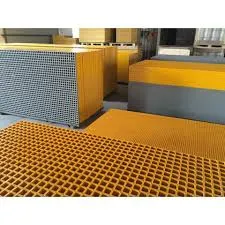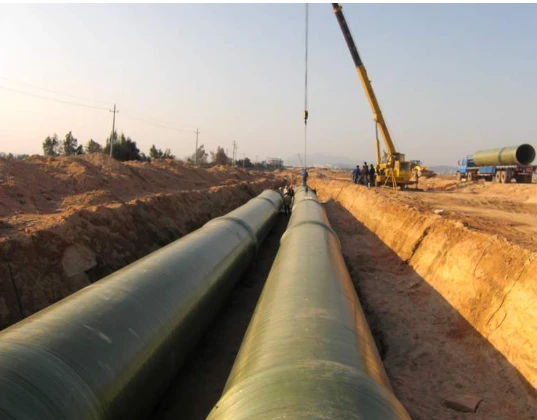
-
 Afrikaans
Afrikaans -
 Albanian
Albanian -
 Amharic
Amharic -
 Arabic
Arabic -
 Armenian
Armenian -
 Azerbaijani
Azerbaijani -
 Basque
Basque -
 Belarusian
Belarusian -
 Bengali
Bengali -
 Bosnian
Bosnian -
 Bulgarian
Bulgarian -
 Catalan
Catalan -
 Cebuano
Cebuano -
 China
China -
 China (Taiwan)
China (Taiwan) -
 Corsican
Corsican -
 Croatian
Croatian -
 Czech
Czech -
 Danish
Danish -
 Dutch
Dutch -
 English
English -
 Esperanto
Esperanto -
 Estonian
Estonian -
 Finnish
Finnish -
 French
French -
 Frisian
Frisian -
 Galician
Galician -
 Georgian
Georgian -
 German
German -
 Greek
Greek -
 Gujarati
Gujarati -
 Haitian Creole
Haitian Creole -
 hausa
hausa -
 hawaiian
hawaiian -
 Hebrew
Hebrew -
 Hindi
Hindi -
 Miao
Miao -
 Hungarian
Hungarian -
 Icelandic
Icelandic -
 igbo
igbo -
 Indonesian
Indonesian -
 irish
irish -
 Italian
Italian -
 Japanese
Japanese -
 Javanese
Javanese -
 Kannada
Kannada -
 kazakh
kazakh -
 Khmer
Khmer -
 Rwandese
Rwandese -
 Korean
Korean -
 Kurdish
Kurdish -
 Kyrgyz
Kyrgyz -
 Lao
Lao -
 Latin
Latin -
 Latvian
Latvian -
 Lithuanian
Lithuanian -
 Luxembourgish
Luxembourgish -
 Macedonian
Macedonian -
 Malgashi
Malgashi -
 Malay
Malay -
 Malayalam
Malayalam -
 Maltese
Maltese -
 Maori
Maori -
 Marathi
Marathi -
 Mongolian
Mongolian -
 Myanmar
Myanmar -
 Nepali
Nepali -
 Norwegian
Norwegian -
 Norwegian
Norwegian -
 Occitan
Occitan -
 Pashto
Pashto -
 Persian
Persian -
 Polish
Polish -
 Portuguese
Portuguese -
 Punjabi
Punjabi -
 Romanian
Romanian -
 Russian
Russian -
 Samoan
Samoan -
 Scottish Gaelic
Scottish Gaelic -
 Serbian
Serbian -
 Sesotho
Sesotho -
 Shona
Shona -
 Sindhi
Sindhi -
 Sinhala
Sinhala -
 Slovak
Slovak -
 Slovenian
Slovenian -
 Somali
Somali -
 Spanish
Spanish -
 Sundanese
Sundanese -
 Swahili
Swahili -
 Swedish
Swedish -
 Tagalog
Tagalog -
 Tajik
Tajik -
 Tamil
Tamil -
 Tatar
Tatar -
 Telugu
Telugu -
 Thai
Thai -
 Turkish
Turkish -
 Turkmen
Turkmen -
 Ukrainian
Ukrainian -
 Urdu
Urdu -
 Uighur
Uighur -
 Uzbek
Uzbek -
 Vietnamese
Vietnamese -
 Welsh
Welsh -
 Bantu
Bantu -
 Yiddish
Yiddish -
 Yoruba
Yoruba -
 Zulu
Zulu
Feb . 13, 2025 18:16
Back to list
Other Products
Fiberglass Reinforced Plastic (FRP) insulation tanks have emerged as a pivotal solution in industries requiring robust storage systems. As an authority in the field of industrial storage solutions, my years of experience underscore the myriad benefits these tanks offer across various applications.
One cannot overlook the environmental benefits of FRP insulation tanks. Their ability to effectively insulate reduces energy consumption, thus lowering the carbon footprint of facilities. Additionally, FRP is a recyclable material, aligning with sustainable practices and policies aimed at reducing industrial waste. In an age where environmental considerations are crucial in every industry, the sustainable attributes of these tanks further enhance their appeal. In terms of implementation, the installation process of FRP insulation tanks is relatively straightforward, involving fewer complexities compared to traditional metal or concrete tanks. This ease of installation, coupled with low maintenance requirements, makes them a financially sound choice. Their resistance to biological growths such as algae and other microorganisms ensures hygiene standards are upheld, which is especially important in food and beverage industries. Taking into account real-world applications, FRP insulation tanks have been employed in sectors requiring stringent temperature control, such as pharmaceuticals and petrochemicals. In such environments, even minor temperature fluctuations can severely impact the quality and efficacy of stored substances. The superior insulation properties of FRP tanks safeguard against such issues, maintaining optimal conditions consistently. In conclusion, FRP insulation tanks offer a compelling combination of durability, flexibility, and eco-friendliness, position themselves as an exemplary choice for modern industrial needs. Their ability to meet high safety and quality standards, along with their documented history of reliability across various sectors, affirms their status as a product of choice for discerning industries. The investment in FRP insulation tanks is one that not only promises immediate operational benefits but also contributes to long-term savings and sustainability, solidifying their place as an essential asset in the industrial landscape.


One cannot overlook the environmental benefits of FRP insulation tanks. Their ability to effectively insulate reduces energy consumption, thus lowering the carbon footprint of facilities. Additionally, FRP is a recyclable material, aligning with sustainable practices and policies aimed at reducing industrial waste. In an age where environmental considerations are crucial in every industry, the sustainable attributes of these tanks further enhance their appeal. In terms of implementation, the installation process of FRP insulation tanks is relatively straightforward, involving fewer complexities compared to traditional metal or concrete tanks. This ease of installation, coupled with low maintenance requirements, makes them a financially sound choice. Their resistance to biological growths such as algae and other microorganisms ensures hygiene standards are upheld, which is especially important in food and beverage industries. Taking into account real-world applications, FRP insulation tanks have been employed in sectors requiring stringent temperature control, such as pharmaceuticals and petrochemicals. In such environments, even minor temperature fluctuations can severely impact the quality and efficacy of stored substances. The superior insulation properties of FRP tanks safeguard against such issues, maintaining optimal conditions consistently. In conclusion, FRP insulation tanks offer a compelling combination of durability, flexibility, and eco-friendliness, position themselves as an exemplary choice for modern industrial needs. Their ability to meet high safety and quality standards, along with their documented history of reliability across various sectors, affirms their status as a product of choice for discerning industries. The investment in FRP insulation tanks is one that not only promises immediate operational benefits but also contributes to long-term savings and sustainability, solidifying their place as an essential asset in the industrial landscape.
Next:
Related Products
Latest news
-
High-Quality Fiberglass Car Bodies Durable GRP Car & Boat Body SolutionsNewsJul.08,2025
-
High-Quality Fiberglass Dual Lamination Product Manufacturer Durable FRP & GRP Dual Lamination SolutionsNewsJul.08,2025
-
Rectangular Tank with Dimensions for GRP Calculation Custom Fiberglass GRP Rectangular TanksNewsJul.07,2025
-
High-Quality Fiberglass Weir Custom FRP Weir & Fiberglass Tanks ManufacturerNewsJul.07,2025
-
CPVC FRP Pipe A Reliable Choice for Industrial Applications High Strength & Corrosion ResistanceNewsJul.07,2025
-
Fiberglass Scrubber for Effective Cleaning and Stain Removal – Superior Performance in Various ApplicationsNewsJul.06,2025









